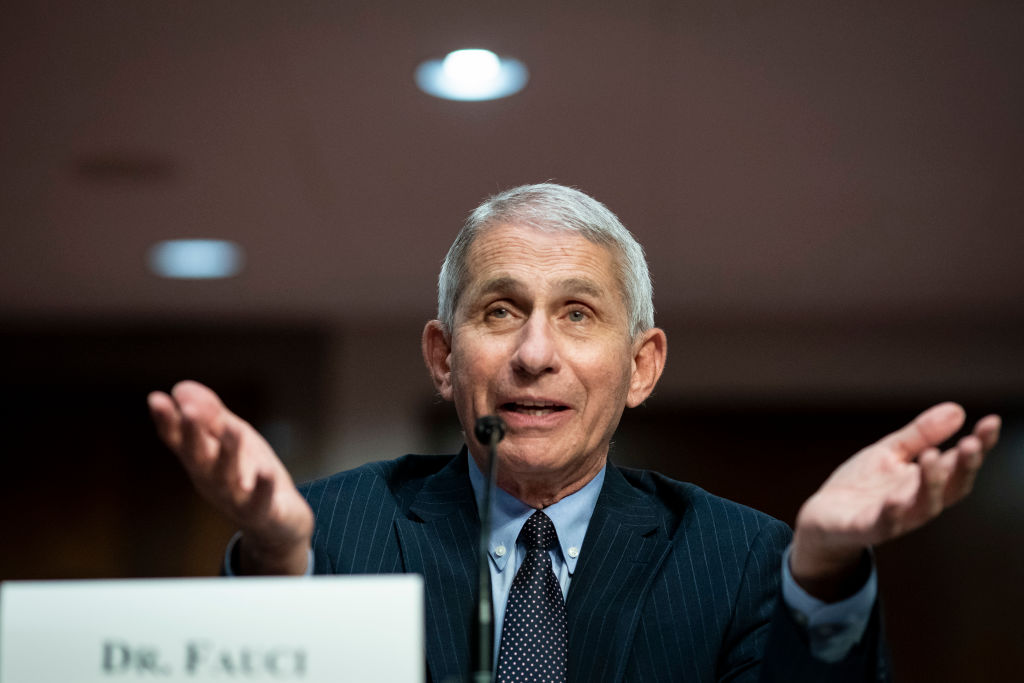An admission by the National Institutes of Health that it funded what amounted to gain-of-function research in China undercuts assertions from Dr. Anthony Fauci and others that the federally funded agency did no such thing, according to one expert.
Such research is controversial because it allows virus that exists in nature to be manipulated in a lab to make it stronger — even more deadly. The research conducted at the Wuhan Institute of Virology, which was funded by the NIH, has taken on new importance in the aftermath of the coronavirus pandemic.
“Collins and Fauci lied to Congress, lied to the press, and lied to the public. Knowingly, willfully and brazenly,” said Richard Ebright, a professor of chemical biology at Rutgers University, according to the Washington Examiner. The “Collins” referred to is NIH Director Francis Collins.
NIH Contradicts Fauci, Admits Funding Gain-of-Function Research at Wuhan Lab https://t.co/8hIq5S3xNa via @BreitbartNews
— Senator Rand Paul (@RandPaul) October 21, 2021
After over a year of denials from the agency’s leadership, NIH Principal Deputy Director Lawrence Tabak admitted last week that the agency funded gain-of-function experiments on bat coronaviruses in China.
Tabak said that its grantee, EcoHealth Alliance, notified the NIH in August that it conducted the gain-of-function experiments with the Wuhan Institute of Virology in China between June 2018 and May 2019. Tabak said EcoHealth failed to immediately notify the agency that they created lab-generated chimeric coronaviruses that exhibited a greater than one log, or ten times increase, in growth.
NIH leaders have tried to say that just because the outcome took place does not mean the NIH funded gain-of-function research.
Bur Ebright called the letter a “bombshell” because it “corrects the untruthful assertions” by Collins and Fauci, the Washington Examiner reported.
Ebright said there is more to this than an unexpected outcome.
“By failing to forward the proposal for the required HHS-level risk-benefit assessment, and then by funding the proposal without the required HHS-level risk-benefit assessment, officials at the NIH violated federal policies that were put in place to protect U.S. national security and U.S. public health … and put at risk U.S. national security and U.S. public health,” Ebright said.
“The NIH spokesperson — or preferably the NIH officials who funded the proposal without the required HHS-level risk-benefit assessment — need to explain how this violation of federal policy occurred and what steps are being taken to ensure that similar violations of federal policy do not occur in the future,” he continued.
Ebright said it was “incontrovertibly correct” that the work conducted by EcoHealth for NIH “show that EcoHealth and its Wuhan partner constructed novel chimeric SARS-related coronaviruses — artificial, lab-generated viruses that do not have counterparts circulating in nature — that exhibited 10,000 times enhanced viral load and two to four times enhanced pathogenicity in infection studies in mice engineered to display human receptors on their cells (‘humanized mice’).”
That means renewing the grant funding for the research required reviews it was never given.
“Therefore is correct that the proposal for the second 5-year grant term, which proposed to construct more such novel chimeric SARS-related coronaviruses — included research reasonably anticipated — indeed highly likely — to create, transfer or use potential pandemic pathogens resulting from the enhancement of a pathogen’s transmissibility and/or virulence in humans — and, therefore, it is correct that the proposal for the second 5-year grant term required HHS-level risk-benefit assessment under the HHS P3CO Framework,” he said.
HHS Deputy admits Fauci’s NIH funded gain-of-function research in Wuhan but says it was “an unexpected result.” If the experiment combines unknown viruses and tests their ability to infect and damage humanized cells, of course the result is ‘unknown’ before the experiment.
— Senator Rand Paul (@RandPaul) October 21, 2021
Ebright said efforts to downplay the research funded by NIH as only having infected animals are an exercise in misdirection.
“They have no shame. In essence, they are claiming that, because the NIH did not fund infection studies with lab-generated viruses and human subjects — Uyghur detainees? Falun Gong dissidents? — the NIH did not fund gain of function research or potential pandemic pathogen enhancement subject to the federal policies,” he stated.
This article appeared originally on The Western Journal.

























 Continue with Google
Continue with Google